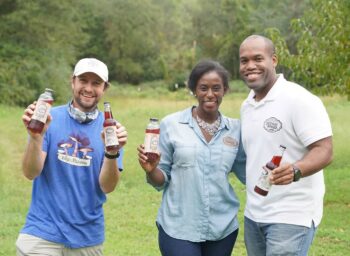When Najeeb Muhaimin approached Nicholas Walker, director of operations at Emory University, about buying the hibiscus products and pastured Halal chickens he was raising at Pride Road Farm, his poultry and hibiscus operation in Shady Dale, Georgia, Walker’s immediate response was: “Let’s make it work.”
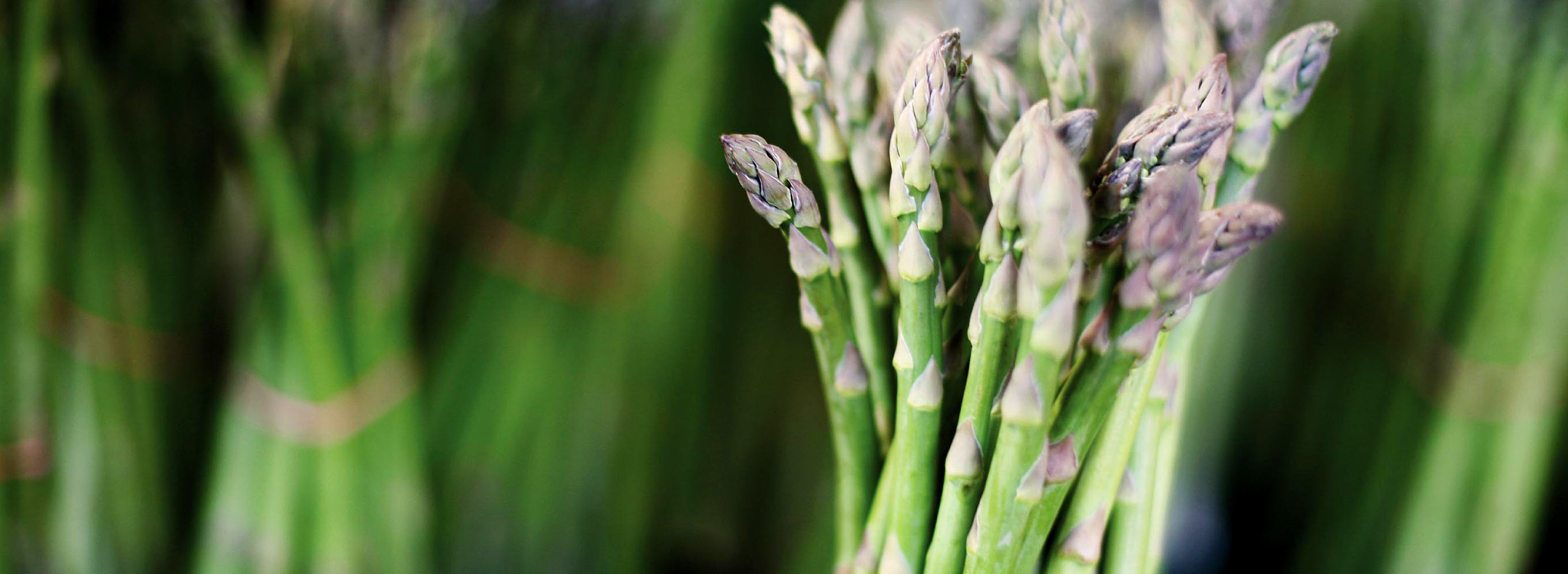
Blog: Sourcing
+ Blog Categories
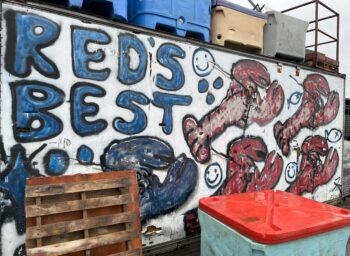
Farm to Fork Profile: Red’s Best Flips the Script on Supply and Demand for Local Seafood
- Blog
Red’s Best was founded in 2008 by Jared (Red) Auerbach, a fisherman and entrepreneur who’d worked on boats in Alaska and Cape Cod and had noticed how small-scale fishermen were struggling to manage shifts in the regulatory landscape and in the ocean itself. They’ve been a partner for years, introducing many of our universities to lesser-known species with their fish of the day program.
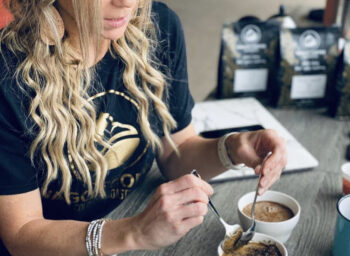
Farm to Fork Profile: Wagon Coffee Empowers Women in Recovery
Wagon Coffee was started in 2020 by Tami Canaday, a former barista who moved up the corporate ladder in the coffee industry over 20 years before striking out on her own. She started her company as a way to support the recovery community that she and her husband Ryan help nurture in the Denver area through their non-profit, called FREE Recovery Community.
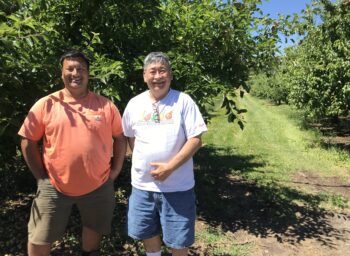
Farm to Fork Profile: A Generational Partnership with A&J Orchards
- Blog
Outside of Hood River, Oregon, fruit trees sprawl across acres and acres of bucolic landscape of the Columbia River Gorge. Sam Asai and his family have been tending their orchard here for generations.
Sam, whose grandparents emigrated from Japan in the early 20th century, owns and operates the orchard together with his family. Sam’s grandparents purchased some of the land that now makes up A&J’s acreage in the 1900s, raising their family and establishing their first fruit trees.
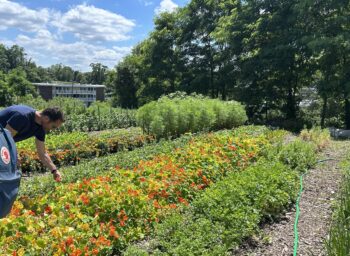
From Community Composting to National Strategies: Blueprints for Food Loss and Waste Reduction at ReFED’s Food Waste Summit
- Blog
With approximately 38% of food in our supply chain going to waste — costing roughly $218 billion each year — the need for food waste reduction is overwhelming from an equity, economic, and environmental perspective. While these numbers are shocking, it’s easy to get lost in the national statistics and fail to see the immense amount of community-driven change happening all around us. At ReFED’s annual conference, the focus was sharing strategies on food waste reduction across local and federal levels and between public and private sectors.
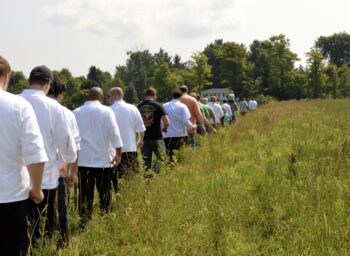
Farm to Fork Profile: New Creation Farm and a Partnership that Feels Like Family
- Blog
In 2014, Vincent Gaikens went looking for a change. After a decade and a half of working for another large food service company, he felt a longing to develop relationships with local farmers and showcase seasonal ingredients from his home state of Ohio. After a brief job search, Vincent found a match with Bon Appétit at Case Western Reserve University (CWRU). “As soon as I started, I was enamored,” says Vincent. “I remember the first delivery I got from a farmer. I shook his hand and felt this connection – like he was transferring responsibility to me through this handshake.” As the Campus Executive Chef at CWRU and regional Forager in Bon Appétit’s Southeast-Midwest region, Vincent embraced Bon Appétit’s Farm to Fork commitment from the very beginning of his time with the company. He began reaching out to potential […]
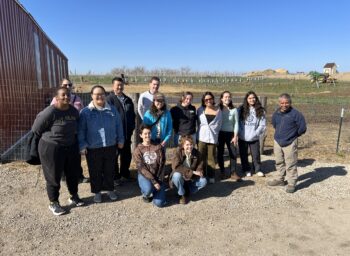
Farm to Fork Profile: A Vision for the Future of Regenerative Agriculture at Tree-Range Farms
- Blog
Salvatierra Farms is alive with flocks of pasture-raised chickens, native trees, and crops. A group of 15 students, staff, and Bon Appétit chefs from St. Olaf College and Carleton College, where Salvatierra is a Farm to Fork partner, recently had the privilege of learning from Regi’s unique approach to agriculture (and life itself!).
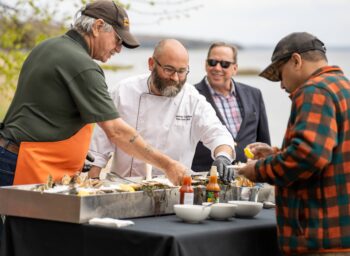
Farm to Fork Profile: A Model for Local Sourcing at Rogers Williams University
- Blog
The Bon Appétit at Roger Williams team has built a leading local sourcing program, bringing the best of the state’s cornucopia of seafood, produce, and animal proteins to campus. Over the past 18 years, the team, led by General Manager James Gubata and Culinary Director Jonathan Cambra, has worked closely with a tight-knit group of Farm to Fork vendors, learning some valuable lessons along the way.
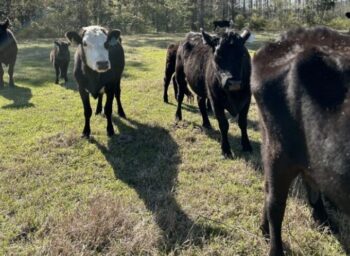
Farm to Fork Profile: Hunter Cattle and Savannah College of Art & Design
- Blog
Farm to Fork partner Hunter Cattle Company is a multi-generation family-run farm, that was started “by accident” but has since flourished into a thriving and beloved producer in the region. Del Ferguson first ventured into raising cattle for his family. At the time, he had no idea that grass-fed beef would be desired by the community, much less marketable.

11 Ways to Flip the Switch to Plants to Reduce Your Carbon Footprint
- Blog
Generally, producing animal-based foods like beef, lamb, and dairy products creates more carbon emissions than plant-based foods like beans, legumes, and whole grains – and is why shifting to a diet centered on plants is one of the most impactful ways to combat climate change.
